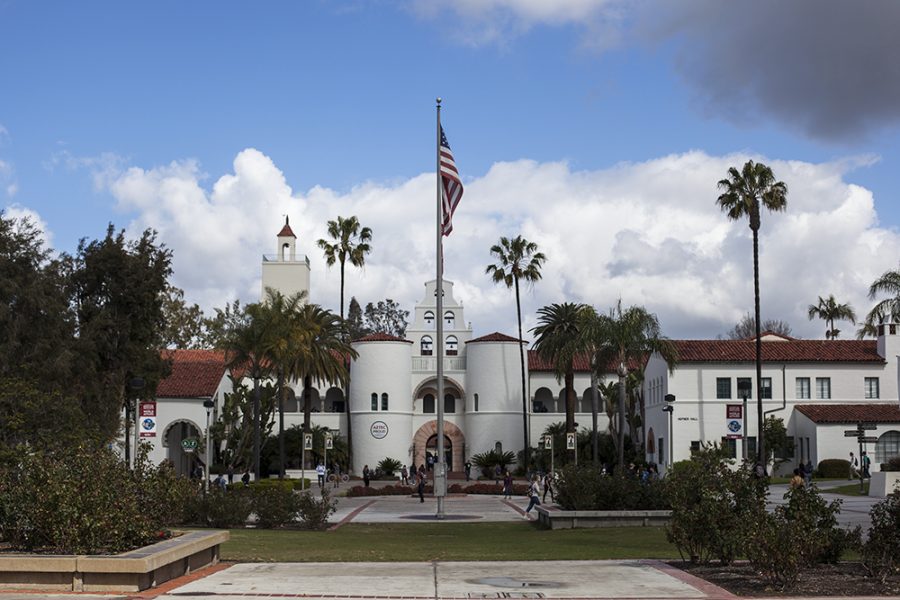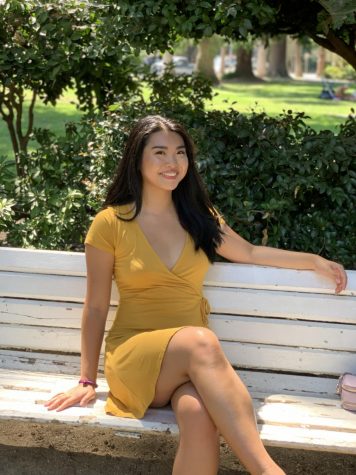San Diego State hosted an Academic Freedom panel on March 2 at the International Student Center to showcase its work with Scholars at Risk.
The panel discussion gave two scholars the platform to share their experiences with SAR and what conditions led them to flee their countries.
SAR identifies scholars in need of protection regardless of what country they live in and provides them with a safe haven, SDSU’s SAR Representative Mark Freeman said.
SAR has member institutions around the world. The most recent report identified 324 attacks on higher education communities in 56 countries.
SDSU has been a part of SAR since 2011. With the support of the president and head administrators over the past two years, SDSU SAR representatives have created programs which have placed two visiting at-risk scholars from Turkey and Iraq, Freeman said.
“We live in a time where we get more news than we can sort,” Freeman said. “It can be hard to sort what’s important but the hope is through this panel, we can bring more awareness to academic freedom and how it’s at risk in many countries. Being a professor here gives me an opportunity to be proactive about these issues.”
At-risk scholars around the world face a number of threats including harassment, surveillance, physical or sexual intimidation, arrest on false charges, detention without trial, trial and imprisonment, torture, disappearance, extrajudicial killing and more, according to the SAR website.
“Without academic freedom, our students suffer,” Freeman said.
The panel gave context to the work SAR does in collaboration with SDSU and many other colleges.
Grace Cheng, director of the College of Arts and Letters and Interdisciplinary Human Rights Initiative, spoke of her firsthand experience with censorship during her research in Vietnam.
“The Communist Party in Vietnam still closely guarded education,” Cheng said. “The first time I was asked to speak they told me I could talk about whatever. The second time, however, people strongly encouraged me not to speak.”
Cheng also noted how academic freedom is still at risk in the U.S. in more subtle ways.
Professor of International Relations Jonathan Graubart spoke on anti-semitism in the U.S. and the hatred he’s faced as a Jewish man.
Professor of Public Administration Nihat Celik was one of the two scholars at risk who shared their story at the panel.
“Scholars at Risk allows people to teach again after all of the turbulence in their life and country,” Celik said. “They make the process easier, especially when people are afraid to get in touch with you after you’ve been charged with heavy terrorist charges.”
Celik had only been teaching at the Meliksah University in Turkey for four months when he was charged with being associated with a terrorist organization.
About 25,000 other citizens including scholars, physicians and engineers were also charged in July 2016. This accounted for almost a third of the community Celik lived in.
All those accused were arrested and imprisoned. Once released, they were placed on a travel ban and were essentially blacklisted from being hired to any other job, Celik said.
After three years, the government finished the investigation and found that it couldn’t build a case due to lack of evidence.
Celik got his passport back in April of 2019 and then filled out an application through SAR to look for positions at other colleges outside of his country.
It was easier for him to leave his country since Celik is single. His parents and brother work in the private sector and their jobs were not as affected by Turkey’s changing government, Celik said.
In August of 2019, Celik started teaching at SDSU and has been hired on as a lecturer for the next academic year through the School of Public Affairs, Freeman said.
“While it’s not a permanent solution, it does provide an opportunity for these scholars to work, gain access to financial resources and build connections,” Freeman said.
The other scholar-at-risk that spoke was Anthropology Professor Dilsa Deniz from UCSD. Deniz gave background on the turmoil and political state of Turkey.
Hosting at-risk scholars is of immediate benefit to them and their families, Freeman said. Working at SDSU provides safety, resources and an opportunity to pursue their teaching and scholarly activities.
“It benefits faculty and students, offering first-hand perspectives on current challenges and conflicts,” Freeman said. “These scholars are resources to the larger San Diego community. This is especially important at a time when U.S. policy is creating obstacles for those seeking political asylum. It’s not hard for faculty to imagine what it would be like if we were removed from our positions and faced imprisonment for expressing our views. A peer-to-peer response is a concrete way to make a difference.”
Students who attended the event felt strongly about the topics discussed.
“I really want to encourage students to come out to more of these events,” International Security and Conflict Resolution Senior Arianna Camargo said. “They are encouraging teaching without censorship. Especially right now with the lack of net neutrality, educators should never be censored because they’re teaching students to be leaders of the next generation.”
On April 7, the SDSU Senate will vote on a resolution calling on SDSU to host a visiting scholar annually.
A previous version of this story named Nihat Celik as a political science professor. This has been adjusted to the correct title. The Daily Aztec regrets this error.









